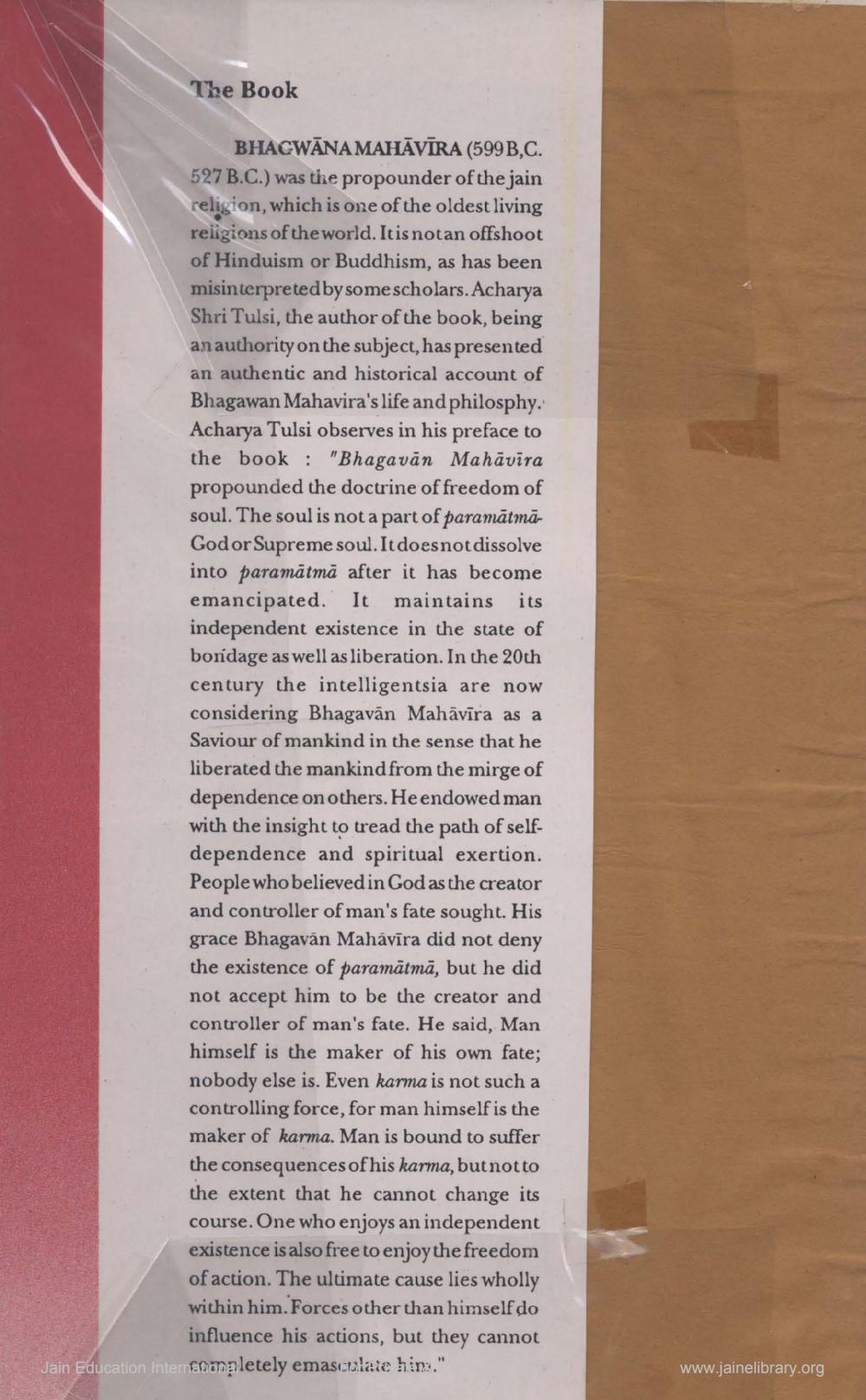________________
The Book
BHAGWANA MAHĀVĪRA (599B,C. 527 B.C.) was the propounder of the jain religion, which is one of the oldest living religions of the world. Itis notan offshoot of Hinduism or Buddhism, as has been misinterpreted by some scholars. Acharya Shri Tulsi, the author of the book, being an authority on the subject, has presented an authentic and historical account of Bhagawan Mahavira's life and philosphy. Acharya Tulsi observes in his preface to the book : "Bhagavān Mahāvīra propounded the doctrine of freedom of soul. The soul is not a part of paramātmāGodor Supreme soul. It does not dissolve into paramātmā after it has become emancipated. It maintains its independent existence in the state of borídage as well as liberation. In the 20th century the intelligentsia are now considering Bhagavān Mahāvīra as a Saviour of mankind in the sense that he liberated the mankind from the mirge of dependence on others. Heendowed man with the insight to tread the path of selfdependence and spiritual exertion. People who believed in God as the creator and controller of man's fate sought. His grace Bhagavān Mahavīra did not deny the existence of paramātmā, but he did not accept him to be the creator and controller of man's fate. He said, Man himself is the maker of his own fate; nobody else is. Even karma is not such a controlling force, for man himself is the maker of karma. Man is bound to suffer the consequences of his karma, but not to the extent that he cannot change its course. One who enjoys an independent existence is also free to enjoy the freedom of action. The ultimate cause lies wholly within him. Forces other than himself do
influence his actions, but they cannot Jain Education Interncomaletely emasculata hin."
www.jainelibrary.org




